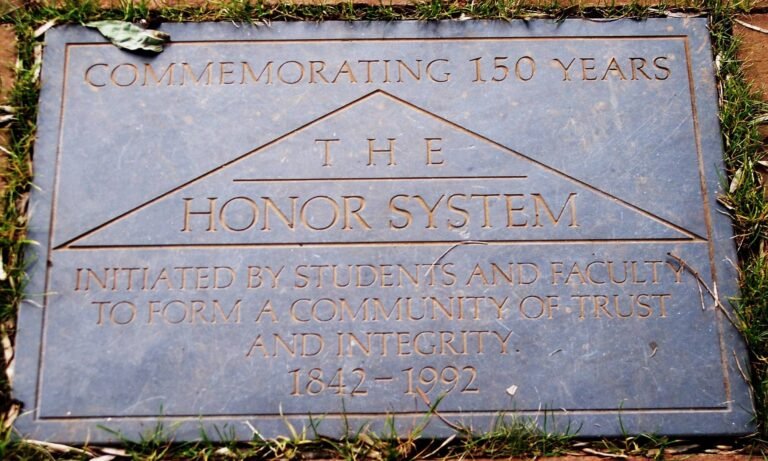The term ‘genesis’ carries with it a weight of origins, beginnings, and the inception of existence. It is a concept that has been explored and revered in various contexts, from the religious to the metaphorical. At its core, the idea of genesis is about the starting point of something significant, whether it be the universe, life, or a personal journey.
In the religious context, ‘Genesis’ refers to the first book of the Bible and the Torah, which details the creation of the world by God. “In the beginning, God created the heavens and the earth,” is a phrase that has echoed through time, signifying the divine act of creation that set everything into motion. This narrative has shaped the foundational beliefs of many cultures and religions, providing a framework for understanding the world and our place within it. The Book of Genesis itself is not just a story of the beginning but also a collection of firsts: the first man and woman, the first sin, and the first promise of redemption. It sets the stage for the rest of the Biblical narrative and the unfolding of human history as seen through the lens of the ancient Israelites.
Beyond its religious significance, the concept of genesis has also been applied to various fields such as literature, science, and philosophy. In literature, a genesis can be the opening of a story, setting the stage for the narrative to unfold. In science, it can refer to the origin of the universe, known as the Big Bang, or the beginning of life on Earth. Philosophically, genesis can represent the birth of ideas and the commencement of intellectual movements.
The idea of a genesis is also deeply personal. Each individual experiences their own beginnings – moments that define the start of new chapters in life. These can be as monumental as the birth of a child or as simple as the start of a new day. Each genesis carries with it a sense of potential, opportunity, and the unknown.
“In Genesis, it says that it is not good for a man to be alone; but sometimes it is a great relief.”
– John Barrymore
Genesis and Agnosticism: A Brief Overview
Genesis, the biblical account of creation, and agnosticism, the belief that the divine’s existence is unknown, represent two distinct approaches to understanding our origins. While Genesis offers a narrative of the world’s beginnings, agnosticism suggests that such knowledge may be beyond human reach.
This contrast invites individuals to reflect on the relationship between faith and reason, and to explore the value of both religious narratives and scientific inquiry in their search for truth. The ongoing dialogue between these perspectives continues to shape our collective quest for meaning.
In conclusion, the conversation between the narrative of Genesis and the philosophy of agnosticism is a testament to the enduring human quest for meaning and truth. It invites us to consider the mysteries of existence with an open mind and a respectful acknowledgment of different paths to understanding.
The Big Bang

The most popular theory of our universe’s origin centers on a cosmic cataclysm unmatched in all of history – the big bang. This theory was born of the observation that other galaxies are moving away from our own at great speed, in all directions, as if they had all been propelled by an ancient explosive force. Before the big bang, scientists believe the eintrie vastness of the observable universe, including all of its matter and ratioation was compressed into a hot, dense mass jsut a few millimeters across. This neary incomprehensible state is theorized ot have existed for just a fraction of the first second of time.
The term “Big Bang” was actually coined by British astronomer Fred Hoyle during a radio broadcast in 1949, somewhat derisively, as he himself supported an alternative steady-state model of the universe. Despite its initial skepticism, the Big Bang Theory has become the leading explanation for the universe’s beginnings, with the detailed measurements of the cosmic microwave background by the Cosmic Background Explorer (COBE) satellite in the 1990s providing strong support.
The Big Bang Theory stands as a pivotal concept in our understanding of the universe’s origins, marking the beginning of everything we know. It posits that the universe started from an extremely hot and dense point approximately 13.8 billion years ago and has been expanding ever since. This theory is supported by multiple strands of evidence, including the cosmic microwave background radiation, the abundance of light elements, and the redshift of distant galaxies, all pointing to a dynamic and ever-evolving cosmos. Many believe that as time passed and matter cooled, more diverse kinds of atoms began to form, and they eventually condensed into the stars and galaxies of our Present Universe.
The Big Bang Theory, both as a scientific principle and a cultural phenomenon, demonstrates the power of curiosity and the human desire to understand our origins. It reminds us that our quest for knowledge is reflected not only in the study of the cosmos but also in the stories we tell and the laughter we share. As we continue to explore the universe, both scientifically and through storytelling, the Big Bang remains a testament to the wonders of the universe and the human imagination. For more on the scientific aspect of the Big Bang Theory, NASA’s Space Place offers a kid-friendly explanation that can be enjoyed by curious minds of all ages.
Exploring the Cosmos: Alternatives to the Big Bang Theory
The Big Bang Theory has stood as the predominant cosmological model explaining the universe’s origins for decades. It posits that the universe began as a singular point, which has been expanding ever since. However, the scientific community is a landscape of constant inquiry and debate, leading to the proposal of various alternative theories. Here, we delve into some of these fascinating alternatives that challenge the traditional Big Bang narrative.
- The Steady State Theory
Proposed in the late 1940s by Sir Fred Hoyle, Thomas Gold, and Hermann Bondi, the Steady State Theory suggests that the universe is eternal and has no beginning or end. It posits that new matter is continuously created as the universe expands, maintaining a constant density. - The Ekpyrotic Model
This model proposes that our universe is the result of a collision between two three-dimensional worlds on a hidden fourth dimension. It’s a brainchild of the string theory and offers a non-singular beginning to the universe, avoiding the need for a Big Bang. - The Cyclic Universe Theory
Building on the ekpyrotic model, the cyclic universe theory suggests that the universe undergoes endless cycles of Big Bangs and Big Crunches, with each cycle lasting trillions of years. This theory provides a potential solution to the entropy problem posed by a perpetually expanding universe. - The Plasma Cosmology
Championed by Nobel laureate Hannes Alfvén, plasma cosmology views the universe as an entity dominated by electromagnetic forces, rather than gravity. This theory diverges from the Big Bang by suggesting a universe without a beginning, composed largely of plasma. - The Quantum Gravity Model
This model attempts to merge quantum mechanics with general relativity. It suggests that the universe could bounce back from a previous contraction phase, leading to the current expansion phase, thus negating the need for a singular beginning.
Each of these theories presents a unique perspective on the universe’s origin and evolution. While the Big Bang Theory remains the most widely accepted model, these alternatives highlight the dynamic nature of scientific exploration. They remind us that our understanding of the cosmos is still evolving, and there may yet be new discoveries that reshape our cosmic narrative.
In conclusion, the concept of ‘genesis as a beginning’ is a multifaceted one, rich with historical, cultural, and personal significance. It is a reminder of where we come from and an invitation to contemplate where we are going.
Whether we look to the stars, the sacred texts, or within ourselves, the genesis is a point from which we can all trace the start of something extraordinary. It is the first brushstroke on the canvas of existence, the first note in a symphony of life, and the first step on a journey of discovery. The power of a beginning lies in its limitless potential, the promise of growth, and the adventure that awaits. What will your genesis lead to? Explore, reflect, and begin.
What’s More

My Blog (58)
Dependence (5) Fiction (7) Karma (6) Landmarks (4) Paramount (5) Poignancy (5) Spectrum (6) Spotlight (5) Take Off (5) Unique (5) Virtue (5)
Amazing Stuff (9) Beyond Known (8) Controversial (10) Digital World (9) Inequities (8) Innovative (8) Metaphysics (8) Our Society (9) Outer Space (9) Value Creation (9)


















